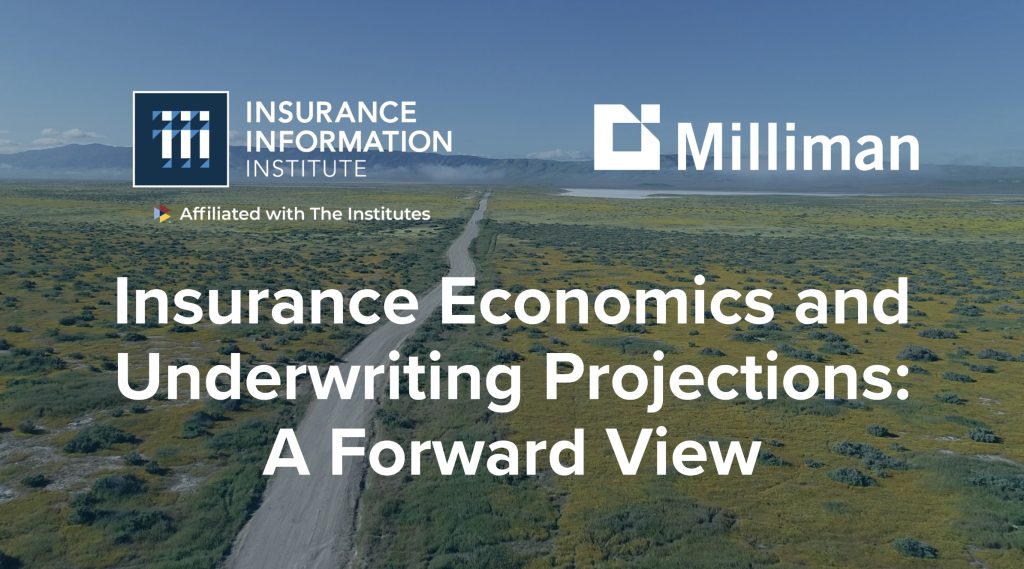P/C Underwriting Losses Forecast to at Least 2025

By Max Dorfman, Research Writer, Triple-I
Poor personal lines performance will keep the U.S. property/casualty insurance industry’s underwriting profitability constrained for at least the next two years, Triple-I’s chief insurance officer told attendees at a members only webinar today.
“We forecast net combined ratios to incrementally improve each year from 2023 to 2025,” said Dale Porfilio, FCAS, MAAA, “with the industry returning to a small underwriting profit in 2025.”
The industry’s combined ratio – a standard measure of underwriting profitability, in which a result below 100 represents a profit and one above 100 represents a loss – is expected to end 2023 at 102.2, almost matching the 2022 result of 102.4.
“Catastrophe losses in the first half of 2023 were the highest in over two decades, slightly higher than the record set in first half of 2021,” Porfilio said. Triple-I predicted net written premium growth for 2023 at 7.9 percent.
Michel Léonard, PhD, CBE, Triple-I’s chief economist and data scientist, discussed key macroeconomic trends impacting the P&C industry results including inflation, rising interest rates, and overall P&C underlying growth.
“U.S. CPI will likely stay in the mid-to-upper 3 percent range through the end of the year,” Léonard said, noting that underlying growth for private passenger auto has resumed its pre-pandemic trend. “Increases in replacement costs continue to decelerate and have now returned to pre-COVID trends as supply-chain backlogs and labor disruptions ended.”
Léonard added that U.S. GDP “will likely decrease on a quarterly basis in the second half of the year compared to the first half, but still avoiding a technical recession in 2023.”
For homeowners, Porfilio noted that the 2023 net combined ratio forecast of 104.8 is nearly identical to 2022 actual. He said homeowners incurred the majority of the first half of 2023 elevated catastrophes.
“A cumulative replacement cost increase of 55 percent from 2019-2022 contributes to our forecast of underwriting losses through 2025,” Porfilio added. “Premium growth in 2023-2025 is forecast to be elevated primarily due to rate increases.”
On the commercial side, Jason B. Kurtz, FCAS, MAAA, a principal and consulting actuary at Milliman, said commercial lines experienced underwriting gains in 2022.
“Commercial auto, however, was one commercial line that did not perform well in 2022,” he said. “For commercial auto, 2022 saw a return to underwriting losses, as the industry logged a 105.4 net combined ratio, the highest since 2019.”
“Workers compensation is the brightest spot among all major P&C product lines, with strong underwriting profitability forecast to continue through 2025,” Kurtz added. “Premium growth is expected to be modest, however, with approximately 3 percent growth each year.”
Donna Glenn, FCAS, MAAA, chief actuary at the National Council on Compensation Insurance, highlighted key factors that influenced the 2022 workers compensation results.
“Overall frequency continues its long-term negative trend as workplaces continue to get safer,” Glenn said. “Medical severity has remained moderate despite rising inflation, and wages and employment are above pre-pandemic levels. While severity was notably higher in 2022, it’s been moderate over the last few years. Together, these system dynamics result in a healthy and strong workers compensation system.”





